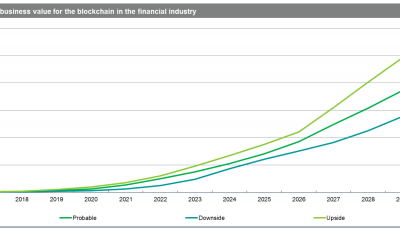Why Buy? Bitcoin is Free R&D For Big Business
 The programming community has long been an independent and even grumpy group of individuals. Programmers have resisted any movement toward unionizing, something that commenters cite as a result of the “staunch individualism” found therein. The same professionals launched organizations dedicated to hacking and exploiting big business, and big brother, the U.S. government. Coining terms like cypherpunk and crypto-anarchy to describe their movement, developers have an impressive streak of individualism. This is perhaps most clearly seen in Linux, the valuable open-source operating system used by millions worldwide.
The programming community has long been an independent and even grumpy group of individuals. Programmers have resisted any movement toward unionizing, something that commenters cite as a result of the “staunch individualism” found therein. The same professionals launched organizations dedicated to hacking and exploiting big business, and big brother, the U.S. government. Coining terms like cypherpunk and crypto-anarchy to describe their movement, developers have an impressive streak of individualism. This is perhaps most clearly seen in Linux, the valuable open-source operating system used by millions worldwide.
Linux is the product of open-source work valued by one estimate at $5 billion. That’s a budget that few tech firms can maintain without significant return on investment. Linux has provided firms like Microsoft, Apple, and Google with development and research, even going so far as contributing to the development of two top-tier web browsers, Safari and Chromium, through the Linux-based KHTML. This technology represents millions of dollars saved by the tech giants, and a number of smaller firms that still rely on Linux and Linux offshoots for their needs. The use of open-source technology is further encouraged because of the difficulty in securing and defending software patents, and the often onerous task of battling patent trolls and other tech giants for seemingly nonsense patents, or patents that cannot possibly be legitimate. Instead, firms can turn to open-source, which operates under different licenses that guarantee fewer days in court, and more time spent developing tomorrow’s technology.
What does this mean for Bitcoin? I’ve talked previously about the serious investment being poured into blockchain technology and the seeming lack of parity in investment directly into Bitcoin, and that is relevant when discussing R&D. Bitcoin, as a protocol and as a means of exchange, is providing R&D free of cost to the many firms interested in distributed ledger technology. Why start from scratch when a team of developers is willing to work on a parallel project, and share all of their development? This is another factor encouraging investment into the firms that develop and research distributed ledger technology, and most critically, possess the ability to pivot toward any lucrative niche that develops down the line. Firms that are pigeonholed in Bitcoin run the risk of living and dying with that single iteration of a blockchain.
Bitcoin is paving the way forward, both in terms of development and in real life use cases, the failures and the successes. It can be vexing at times understanding how firms are investing large sums into blockchain businesses, yet the price of Bitcoin tends to remain unmoved. The use of Bitcoin as R&D for semi-related distributed ledger businesses focused on solving specific issues, rather than replacing the entire monetary system, possibly explains where much of the investment is going. Not into the Bitcoin ecosystem, but into the wider, and less specific, blockchain ecosystem. Bitcoin is providing the testbed in which developers can tinker, evaluate, and learn from others. For businesses and investors playing the long game, flexibility in their ability to pivot their business model may make more sense than committing right now.
Image credit: public domain image by Web-dev-chris

![[Guest Post] Breaking Down Barriers with The Next Generation of DApps](https://coinreport.net/wp-content/uploads/2019/06/Jimmy-Zhong-CEO-of-IOST-400x230.jpg)
![[Guest Post] The True Use Cases for Bitcoin and Its Role in Banking the Unbanked](https://coinreport.net/wp-content/uploads/2019/04/Ray-Youssef-Paxful-CEO-400x230.jpg)









